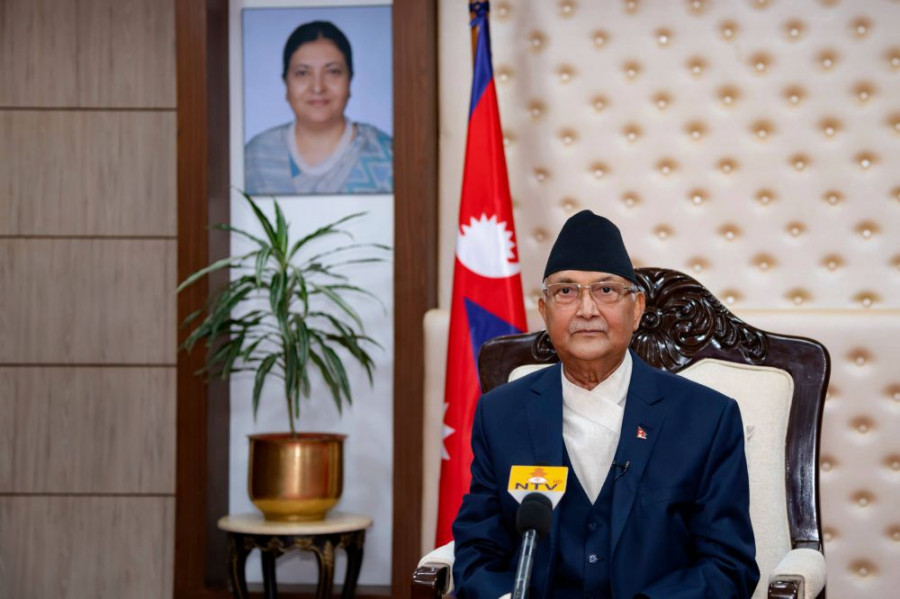Editorial
Sick and tired
The monkey business that is called democratic politics.
Nepalis should perhaps be happy that when Prime Minister KP Sharma Oli addressed the nation on Monday, they did not have to listen to yet another set of pseudoscientific claims about the coronavirus being a seasonal flu that could be kept at bay by just sneezing or gulping turmeric water or gargling with guava leaf juice. In fact, by citing the numbers of the infected and the dead, the prime minister finally seemed to have acknowledged the severity of the Covid-19 crisis in the country. A major survival instinct citizens have developed under Oli’s leadership is to stop expecting anything from the prime minister that helps to make their lives better.
Democratic politics cannot become historically feasible without 'making sense' to the interests of the major contending social groups, Lars Rudebeck wrote in his book When Democracy Makes Sense. For Rudebeck, democracy has to be 'legitimate' in the eyes of the citizens for it to actually work. For democracy to maintain its legitimacy, the ideals of democracy must translate into real improvements in the conditions of the lives of the people. Democratisation opens the way for such improvements, Rudebeck writes, by making it possible for people to use their common resources constructively for ends that make sense to them.
If common citizens are to be asked whether Nepal’s current democratic process makes any sense to them, the answer would certainly be an emphatic ‘no’. For the monkey business that is called democratic politics in contemporary Nepal has become a parallel pandemic in Oli raj as if Covid-19 were not enough. Citizens are running from pillar to post to secure hospital beds. Medical staff are breaking into tears out of helplessness as they see their patients die—not because of the virus itself, but the sheer inability to provide them with bare minimum medical care.
The Nepali Army, which has been cremating those who have died of Covid-19, has said it might have to start mass cremations as the number of the dead is growing exponentially. It has already started cremating the dead on makeshift platforms on the banks of the River Bagmati as the existing ones are overburdened. With the total number of active cases reaching 54,041 today, the number of deaths can only be expected to rise in the coming days and weeks.
And all that the leaders from across the political spectrum care about is the horse trading of lawmakers to make or break the government, be it at the centre or in the provinces. As if the 'chair' were more important to them than the lives of the people. As if unseating a Gurung or a Rai or a Pokharel or an Oli were the panacea for all the ills of present-day Nepal. If they already have not, citizens are now getting disillusioned with the democratic process itself, as political manoeuvring takes primacy when everyone should have come together to rescue the country from the pandemic-induced crisis.
The government is not alone in jettisoning its responsibility. The opposition has been almost as callous as the government when it comes to tackling the pandemic. Just because the government is numerically weaker and insensitive does not mean that the opposition should just jump into the fray and try to dismantle it when the actual priority should be to help maintain stability and help the government save lives. Nothing else is more important today than a sensible handling of the pandemic. If Prime Minister Oli and his company of demagogues have blood on their hands, the principal opposition and other parties in parliamentary politics are partners in crime as well.




 8.79°C Kathmandu
8.79°C Kathmandu














